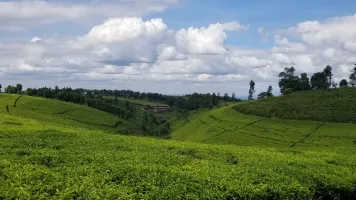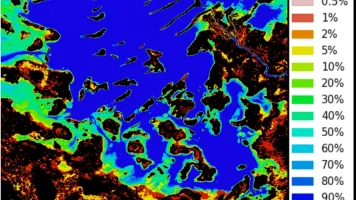Strathmore University Business School provides training programs on business, public policy, healthcare, and education, as well as an agribusiness program through a special project department.
Strathmore is more than an academic institution: It develops practical applications, provides a platform to target today’s challenges, and links parties. Under the Public Policy Department, there is the Africa Media Hub (AMH) (formerly Center for Business Journalism) which was set up in January 2017 under the context that Africa’s future is linked to an improvement in democratic governance and economic growth with a vibrant civil society, private sector, informed media, and public engagement.
Established under the Strathmore Institute for Public Policy and Governance (SIPPG), the AMH is setting up three areas of work namely:
- Centre for Finance and Business to enable experienced journalists and communication experts to carry in-depth reporting and investigation, data analysis, and experts coverage of critical issues related to business and the global economy using data visualization journalism;
- Data Center in partnership with other stakeholders to bring the power of new technologies and innovations to some of the world’s oldest problems, demonstrate the power of partnership and provide new models for action in the era of the data revolution by establishing the first solar-powered data center in the world;
- National Public and Private Service Data Innovation Lab (NPSDI LAB) to create catalytic actions and initiatives that ensure development and uptake of innovations and implementation of data ecosystems that improve government engagement/public service delivery and spur economic growth that benefits the Kenyan Government, its young entrepreneurs, and its industry.
Priorities as a partner of the Global Partnership for Sustainable Development Data
The role of academic institutions in enhancing development through knowledge and research can never be underestimated. It is against this background that Strathmore University feels mandated to support the Kenyan Government realize the goals of Vision 2030 and the Sustainable Development Goals (SDGs). One of the main requirements for governments is the need to gather and analyze data to generate information which is then packaged for by relevant policymakers to inform policy and practice. Strathmore University undertakes to use its resources in Big Data analytics to help the Kenyan government achieve the goals of Vision 2030 and the SDGs.
The launch of the Africa Media Hub at Strathmore University Business School is meant to develop professional skills among the existing and up-coming journalists, communications experts, and other professionals in providing in-depth data analysis, ambitious experts coverage of critical issues related to the global economy, and business using data visualization. It is also meant to improve the media coverage of national statistical data collection, development surveys, and metrics in a way that facilitates public participation and consumption.
Data for data's sake is not our call. Data will not translate into useful information until it is analyzed. Ours is actionable data planned and delivered for the benefit of the most marginalized, and fostering an atmosphere and culture of mutual accountability. We are cognizant of growing economies, robust democracies, and vibrant civil societies and how they are opening new opportunities to achieve the SDGs to make ‘Everyone Count.’
We need to converge the private sector, policymakers, media, and research data analysis, through effective use of data to make decisions. We need to link the various institutions’ work on the use of technology and data analytics which is now having a potential of making it possible for large portions of low-income people to be visible in areas such as participation, engagement, and decision-making, especially in line with SDGs.
Our commitment to make African Data Science Hubs anchor the region’s future is focused on the following:
Agriculture
- To spearhead the setting up of an Agri-Space Centre of Excellence in Kenya to address problems facing agricultural sector. It is based on the following principles: open innovation, co-creation, and creating shared value. In partnership with the Kenyan Government, Oracle, and Water Watch Cooperation, the Africa Media Hub, through open data and innovation will offer disruptive solutions such as new technologies to help farmers make the right decisions concerning crops, increase use of land, proper use of water, and help reduce the use of fertilizers and pesticides. The Agri-Space Centre of Excellence will also connect different stakeholders from farmers, communities, service providers, business communities (large corporation, SMEs, and start-ups), universities, government agencies, and others to achieve innovative solutions. One of the key enabling roles of the Center is the creation of an Agri-Food Platform. Data from various sources (satellites, sensors, drones, authorities, companies, CSOs, private companies, religious organizations, academia, and many others) to serve as an input to develop solutions for multiple reasons.
Health
- Since health is one of the key pillars of development, it needs information on changes on disease epidemiology, new technology, population dynamics, and other social determinants of health that can allow adequate preparation including adequate financial resource allocation to respond to these changes. Data analysis is central to the improvement of the health sector and will play a critical role in helping the central and county government to adequately plan for effective and timely decision-making to deliver quality healthcare to all Kenyans. We plan to collaborate with key government departments to collect and analyze relevant health data. Examples include the Division of non-communicable diseases at the Ministry of Health, the National Aids Control Commission, NASCOP, the Division of Malaria Control, and with level-one health facilities and the M&E Division of the Ministry of Health on Civil Registration and Vital Statistic (CRVS). The focus on CRVS will address the current challenges of poor registration of births and deaths, especially in marginalized areas.
Key partners
- Alumni students who innovated Shamba Sensor -- Strathmore will address farm yields which lead financial losses either in the fields of production or storage. This is because the challenge facing farmers is normally caused by lack of environmental information to make critical decisions. Through the Data Center and Innovation Lab, we will be able to increase smart farming by installing the Shamba Sensor gadgets in identified farms to rely upon real-time information to farmers via SMS ad dashboard access to farmers;
- M-Farm -- An organization that seeks to solve this by providing up-to-date market prices, via an app or SMS, direct to farmers. It also connects farmers with buyers directly, cutting out the middlemen;
- We are also seeing a great opportunity in the development of county-based digital hubs which mobilize and involve youths to capture, analyze, and distribute information, for the AgriFood value chain (small scale, medium-sized farmers), amongst others. This concept of the county-based digital hub is now being tested in Kisumu County and in Nigeria under the responsibility of ACAI (website underdevelopment). This project (supported by Google) aims to train 3,000 young people to introduce them to ICT, digital literacy, mobile app and web app development, online work, entrepreneurship, and life skills. These youths are also enlisted to the Barefoot Youth Digital Squad Database to help bridge the gap in information delivery to rural communities (including farmers).


